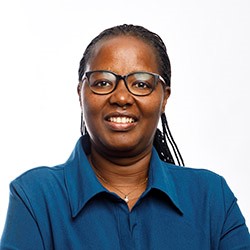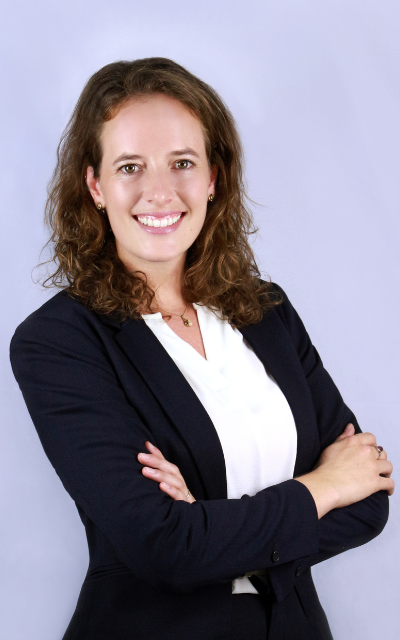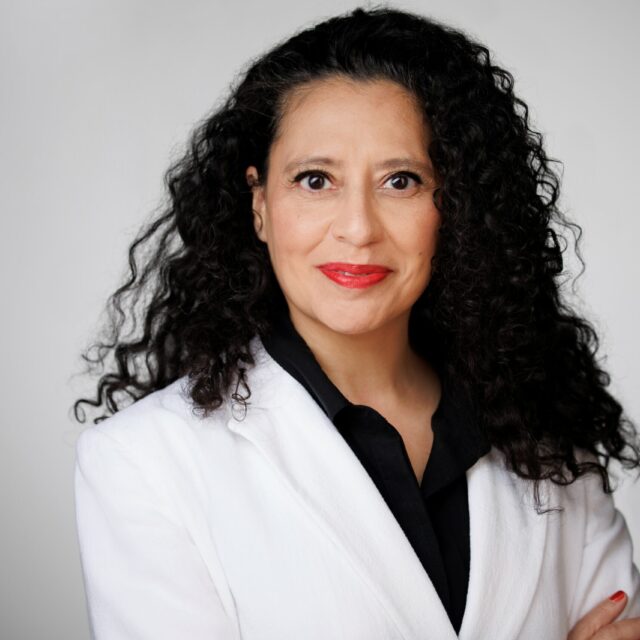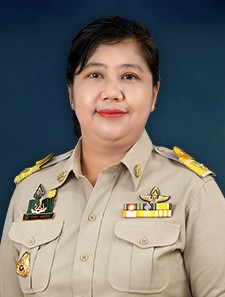Retrospective
Achieving global food security is closely interlinked with achieving a sustainable bioeconomy. Smallholder farmers need access to modern technology in order to be able to implement a sustainable circular economy. At the expert panel on “Bioeconomy and Innovation”, in collaboration with the German Agricultural Society (DLG), four experts presented projects and stated the necessary conditions for realising a resource-conserving and financially viable agricultural sector. Dr Dirk Pauschert from the Gesellschaft für Internationale Zusammenarbeit (GIZ) facilitated the discussion.
The participants included:
Kanjana Dangrungroj, Thai Ministry of Agriculture, Bangkok
Sarah Talea Kretschmer, Innovation & Network Specialist, GETHAC-Project, Bangkok
Dr Gérardine Mukeshimana, Vice-President, International Fund for Agricultural Development (IFAD), Rome
Helga Flores Trejo, Special Envoy Multilateral Affairs & Sustainability, Bayer AG, Washington
Innovation in Thailand
During the discussion, Kanjana Dangrungroj from the Thai Ministry of Agriculture drew attention to the difficulties of balancing agricultural productivity, income, climate resilience and the shift away from fossil fuels. She said that production costs were increasing continuously, that climate change was limiting access to water; that income in the agricultural sector was low, and that women and young people provided important impetus when it came to implementing sustainable production methods and managing land in a resource-conserving way.
Cultivating new crops
Sarah Talea Kretschmer from the German-Thai Agricultural Cooperation Project (GETHAC) described how practical innovations were implemented in Thailand. She gave examples of such innovations, such as improving soil management, finding alternatives to the combustion of plant residues, introducing new crops, realising composting possibilities and making use of choppers for managing residues in palm oil extraction. She said that these approaches contributed to enhancing sustainability and strengthening the resilience of value chains, but it was crucial that farmers benefitted economically from innovations and were provided with an incentive to implement the technologies.
Financing sustainable investments
The Vice-President of the International Fund for Agricultural Development (IFAD), Dr Gérardine Mukeshimana, reported about a range of support schemes. Mukeshimana would like small- and medium-sized farms to be able to use modern technology by means of loan programmes and grants. She said that farmers must not let bureaucratic hurdles such as filling out application forms put them off. She called on organisations to inform farmers about relevant support schemes.
Global partnerships
Helga Flores Trejo explained Bayer AG’s approach to enhancing sustainable economic activities by means of research and innovation. She presented the global corporation’s investments in regenerative agriculture. She emphasised the importance of collaboration with governments, international organisations and smallholder farmers in order to advance sustainable business models.
Call for cooperation
The panel discussion concluded with a call for greater cooperation between public, private and multilateral stakeholders. The panellists agreed that bioeconomy and innovation could only be implemented within a robust policy framework, practical technologies, financial resources and all stakeholders along the agricultural value chain.
Organizer
GFFA Berlin e.V.
Panelists
Moderators & Panelists

Dirk Pauschert
Head of Section on Global Food and Nutrition Security
Deutsche Gesellschaft für Internationale Zusammenarbeit (GIZ)

Gérardine Mukeshimana
Vice President
International Fund for Agricultural Development (IFAD)

Sarah Talea Kretschmer
Innovation and Network Specialist
German-Thai Agricultural Cooperation (GETHAC), founded by BMEL

Helga Flores Trejo
Vice President and Special Envoy of Multilateral and Sustainability Affairs
BAYER AG

Kanjana Dangrungroj
Deputy Secretary General
Bureau of National Bureau of Agricultural Commodity and Food Standards Ministry of Agriculture and Cooperatives


